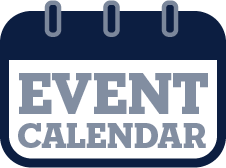Georgia Southern grad student curates virtual exhibits on Southern culture of nuclear plant town during Cold War

Jessica Forsee’s professional goal has always been to make history available to as many people as possible. As a graduate student in the Georgia Southern University Department of History, Forsee has been able to work toward her goal by curating exhibits, doing research and helping with daily tasks as an intern at the Savannah River Site (SRS) Museum.
The SRS Museum is located in Aiken, South Carolina, and focuses on interpreting the history and scientific impact of the nuclear production plant, known as the Savannah River Site, near Aiken.
Forsee helped curate two virtual exhibits on how the Cold War affected the small towns in the Aiken area from 1950 through the 1970s. The first exhibit commemorates the 70th anniversary of the Savannah River Plant’s construction with major partners in the Aiken area. Forsee worked with the Savannah River Archeological Research Program at the University of South Carolina on the exhibit, which opened in November 2020.
Forsee’s newest curated exhibit, “Nuclear Culture: Aiken and Savannah River Plant Life during the Cold War,” is an interpretation of how the Savannah River Plant workers transformed Southern industry and culture including gender norms, race relations and community development at the height of the Cold War. Forsee was able to use technology and research skills she learned in her history classes to build the online exhibit.

“My most memorable experience with ‘Nuclear Culture’ was working with the curation facility at the Savannah River Site and coordinating the artifact loans of over 15 items with the curator, Melissa Hanson,” Forsee said. “Learning how to tell the story of SRS through objects is incredibly important when it comes to exhibit curation. Getting to bring to life the experiences of the everyday worker at SRS during the Cold War made ‘Nuclear Culture’ such an exciting project from the very beginning.”
The Department of History’s Public History Coordinator Michael Van Wagenen, Ph.D., served as one of Forsee’s advisors, helping her with brainstorming sessions, reviewing drafts of her written materials and providing moral support.
“The Master of Arts in History degree program is geared toward providing our students with real-world, professional experiences such as Jessica’s,” Van Wagenen said. “Many of our students who complete these projects go on to work in museums, historic sites, state and national parks, and other places where history is taught both in and out of a formal classroom setting.”
After graduating in May, Forsee will take the first step in her postgraduate career as a historian with the United States Air Force Special Operations Command (AFSOC) at Hurlburt Field, Florida. She said her internship has prepared her to step into her career and immediately begin making an impact on the visibility of public history.
“I 100% believe that my internship prepared me for the next steps in my career because I’ll be tasked with curation and collection upkeep to preserve the long history of AFSOC,” Forsee said. “My internship at the SRS Museum taught me how to take the technical and scientific accomplishments of SRS employees and add in a humanities interpretation to bring to life the larger history of SRS during the Cold War, and at AFSOC, I’ll continue to do the same.”
For more information about the SRS Museum and to view some of Forsee’s work, visit www.srsheritagemuseum.org. To learn more about the Department of History, visit cah.georgiasouthern.edu/history.
Posted in Press Releases

